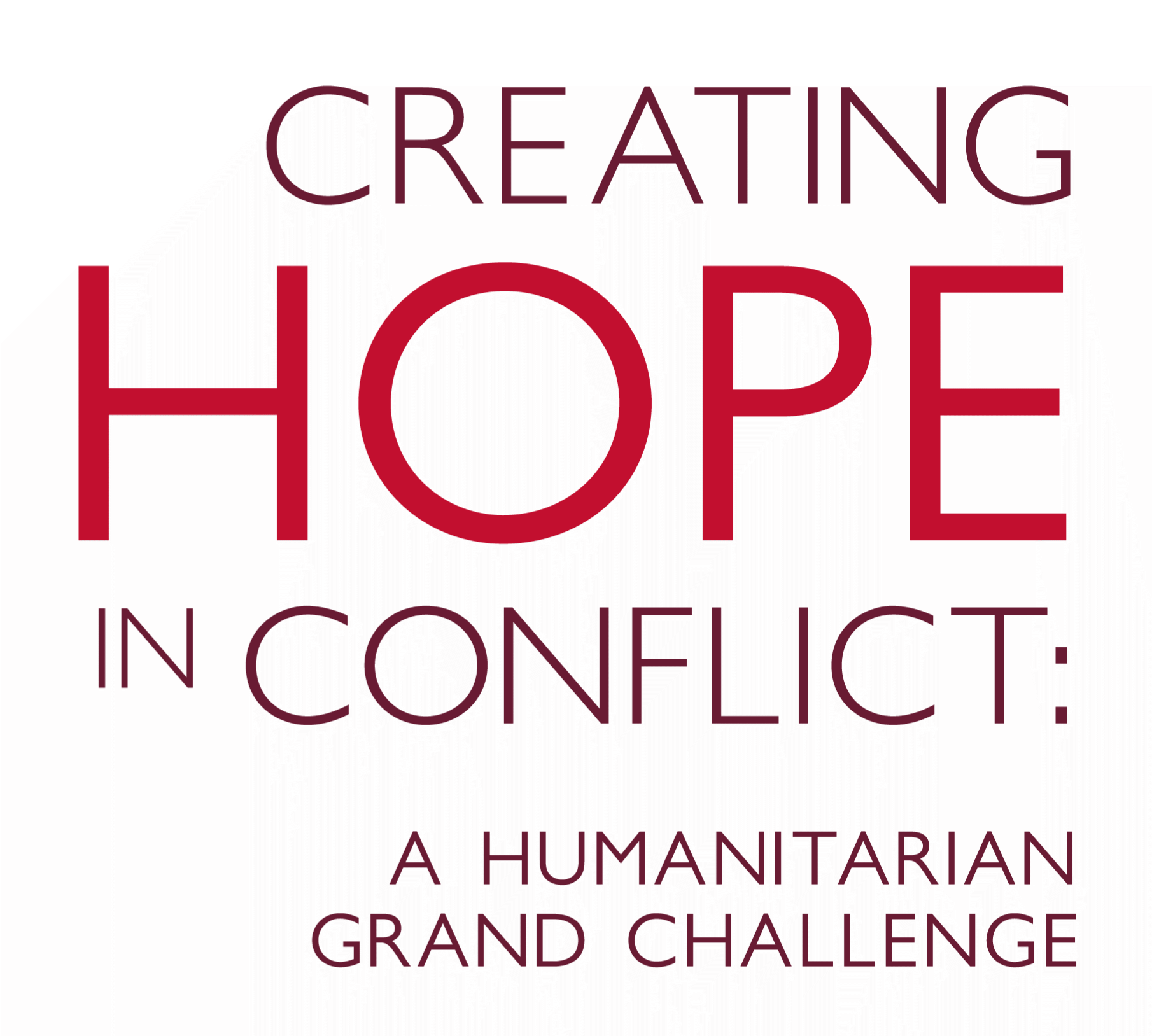The request for proposals for round 3 of Creating Hope in Conflict: A Humanitarian Grand Challenge closes on Monday November 16th at 11am E.T (15:00 GMT). The winners will be chosen in March, 2021. So, what happens in between?
When the window to apply shuts, the U.S. Agency for International Development (USAID), the U.K. Foreign, Commonwealth & Development Office (FCDO), the Ministry of Foreign Affairs of the Netherlands, and Grand Challenges Canada – the Creating Hope in Conflict partners – embark upon a robust and unique review process. The task of selecting up to 15 seed and up to 8 Transition to Scale innovations from a vast pool of proposals (last year we received over 645 from around the world) is a huge undertaking. Our process is designed to surface only the most promising and compelling innovations – those with the potential to transform the way humanitarian assistance is received by vulnerable, hard-to-reach populations affected by conflict.
There are three stages to the selection process:
Step 1: Eligibility Screen
All applications are reviewed for eligibility according to the criteria outlined in the RFP. This includes but is not limited to; applicant is a social enterprise or other recognized institutions, has only one project lead, a project lead is listed on only one application and the application is complete.
Step 2: The Innovation Screen
All eligible applications enter the innovation screen, where project summaries from each application are evaluated on Innovation and Relevance.
- Innovation: Is the proposed solution truly innovative? – i.e. is it a substantially new approach to the problem? Does it represent a significant improvement over current approaches?
- Relevance: Is the idea relevant to the challenge? – i.e. does it address one or more of the four focus areas outlined in the request for proposals? Does it focus on communities affected by conflict?
Each application is reviewed by three screeners. Last year, over three quarter of all applications received were removed from the competition at this stage. Those that best meet the criteria will proceed to the next stage.
Transition to Scale concept notes will also be assessed for their potential for impact, evidence of proof of concept and scale/sustainability. The most promising concept notes may be invited to submit a full application.
Stage 3: The External Review
At this point, Seed applications that pass the innovation screen are split into the three focus areas (Health, Energy, Information). Applications are evaluated in detail by a panel of experts. The panel is hugely diverse and includes subject matter experts; ethics specialists; private sector professionals; and, people with lived experience of conflict. Each application is reviewed by four panelists, one from each of these perspectives. They will evaluate applications for Impact, Integrated Innovation, Project Execution Plan, Leadership Capability to Champion Change and Value for Effort.
The inclusion of people affected by conflict as reviewers represents a progressive step forward in the way such funding opportunities are assessed. We expect applicants to include affected people in the design of their innovations, as we firmly believe that those closest to problems are best placed to deliver solutions. We feel it is vital to also uphold this principle in our own selection process.
Following an online review, we convene a panel meeting with all of our panelists to debate the best innovations and arrive at a shortlist of ‘fundable’ projects. One of our previous panellists, Dr Kirsten Gelsdorf, wrote about her experience, giving an insight into the richness of the deliberations on the day. You can find the blog here.
In the final step in the selection process, the shortlisted proposals are discussed and approved by a steering committee made up of the Humanitarian Grand Challenge partners. This is set to take place in February 2021, with the winners notified shortly after.
The highest rated Transition to Scale proposals will undergo extensive due diligence, including expert analysis, with only up to 8 of the best chosen to pitch their idea to our Investment Committee. This committee is comprised of a mix of angel investors, venture advisors and humanitarian professionals. The shortlisted innovators will present their ideas in a Dragon’s Den style pitch, with the hope of convincing the committee to recommend them for funding.
Our review process is built upon transparency and learning. With this in mind, all unsuccessful applicants will receive feedback on their proposal so that they may refine their idea for future funding opportunities.
While this is indeed a robust and stringent review process, it is also one that is agnostic to the profile of the applicant.
All types of organizations, including local and international NGOs, academics, private sector institutions are eligible to apply for funding. Applicants must understand the context they are working in. We are particularly interested in funding locally-led innovations, as local responders are often better placed to reach affected people in insecure settings, but lack the funding, resources, or the capacity to provide aid in hard-to-reach places.
From all of us at the Humanitarian Grand Challenge, we wish you the best of luck and look forward to receiving your bold ideas. Apply now!
Timelines snapshot:


Creating Hope in Conflict: A Humanitarian Grand Challenge is a partnership of the U.S. Agency for International Development (USAID), the U.K. Foreign, Commonwealth & Development Office (FCDO), the Ministry of Foreign Affairs of the Netherlands, with support from Grand Challenges Canada.
